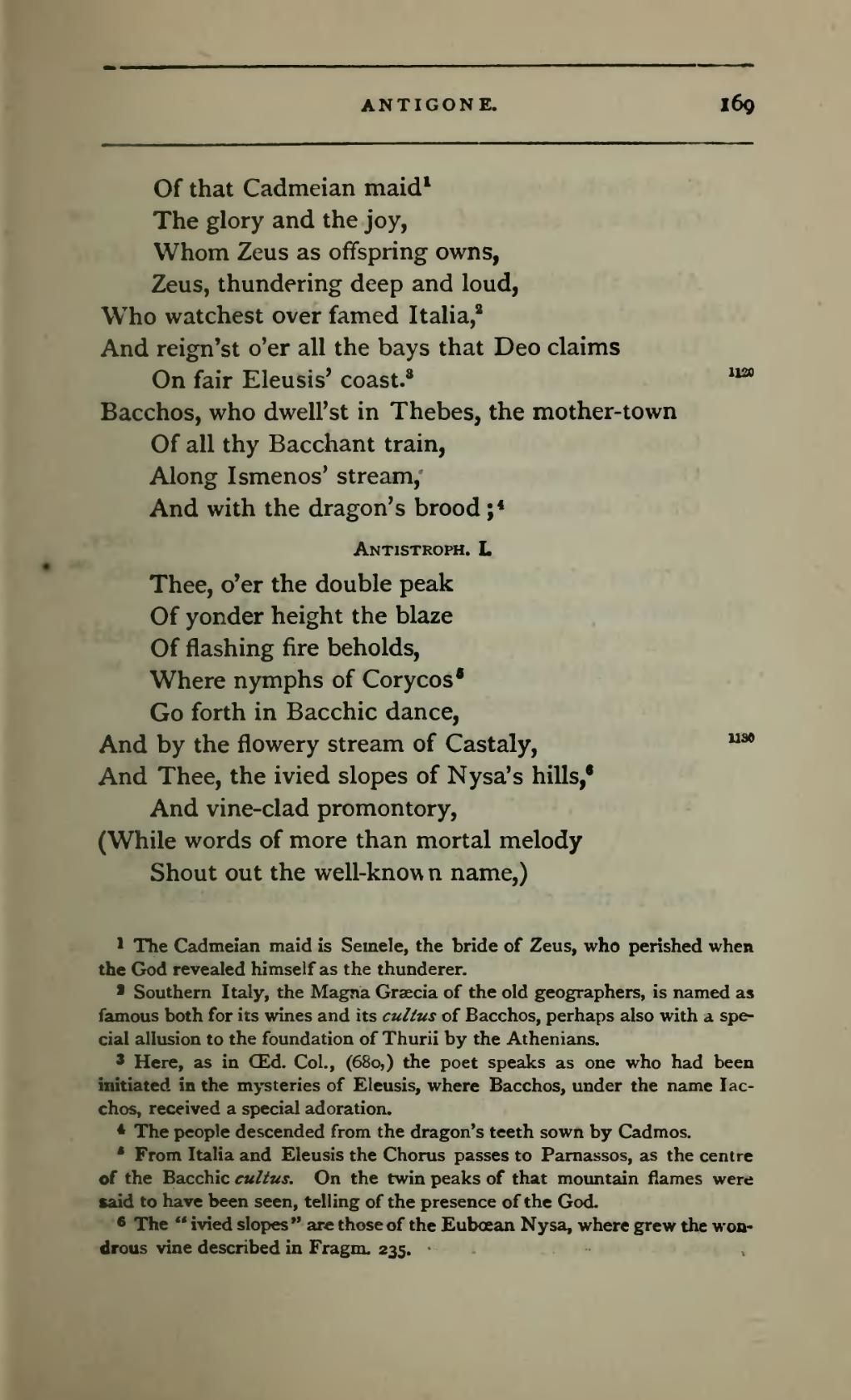ANTIGONE.
169
Of that Cadmeian maid[1]
The glory and the joy,
Whom Zeus as offspring owns,
Zeus, thundering deep and loud,
Who watchest over famed Italia,[2]
And reign'st o'er all the bays that Deo claims
On fair Eleusis' coast.[3]1120
Bacchos, who dwell'st in Thebes, the mother-town
Of all thy Bacchant train,
Along Ismenos' stream,
And with the dragon's brood;[4]
Antistroph. I.
Thee, o'er the double peak
Of yonder height the blaze
Of flashing fire beholds,
Where nymphs of Corycos[5]
Go forth in Bacchic dance,
And by the flowery stream of Castaly,1130
And Thee, the ivied slopes of Nysa's hills,[6]
And vine-clad promontory,
(While words of more than mortal melody
Shout out the well-known name,)
- ↑ The Cadmeian maid is Semele, the bride of Zeus, who perished when the God revealed himself as the thunderer.
- ↑ Southern Italy, the Magna Græcia of the old geographers, is named as famous both for its wines and its cultus of Bacchos, perhaps also with a special allusion to the foundation of Thurii by the Athenians.
- ↑ Here, as in Œd. Col., (680,) the poet speaks as one who had been initiated in the mysteries of Eleusis, where Bacchos, under the name Iacchos, received a special adoration.
- ↑ The people descended from the dragon's teeth sown by Cadmos.
- ↑ From Italia and Eleusis the Chorus passes to Parnassos, as the centre of the Bacchic cultus. On the twin peaks of that mountain flames were said to have been seen, telling of the presence of the God.
- ↑ The "ivied slopes" are those of the Eubœan Nysa, where grew the wondrous vine described in Fragm. 235.
